Smartphones have become an inseparable part of modern life, revolutionizing communication, work, and entertainment. However, excessive smartphone use (ESU) has been linked to various negative consequences, including addiction-like behaviors, impaired mental health, and diminished attention spans. Recent studies suggest that smartphone-related cues can trigger neural responses similar to those seen in substance addiction, reinforcing compulsive usage patterns. Understanding the effects of smartphone restriction on cue-related neural activity can provide valuable insights into developing interventions for individuals struggling with ESU.
The Role of Cue Reactivity in Smartphone Use

Cue reactivity (CR) refers to the brain’s response to stimuli associated with a habitual or addictive behavior. In the case of smartphone use, cues may include notification sounds, phone screens lighting up, or simply seeing a smartphone in one’s environment. These cues can activate reward-related brain regions, reinforcing the compulsive urge to check the device.
Research has shown that individuals with excessive smartphone use exhibit heightened neural responses to smartphone-related cues, similar to those observed in substance addiction. This heightened sensitivity may contribute to difficulty in controlling smartphone usage, leading to a cycle of compulsive checking and craving.
Investigating Neural Activity Changes Through Smartphone Restriction
To better understand how short-term smartphone restriction influences brain activity, researchers conducted a study using functional MRI (fMRI) to measure changes in cue-related neural responses over 72 hours of smartphone abstinence. The study involved 25 young adults who were regular smartphone users.
Video : What Happens To Your Brain When You Mindlessly Scroll?
Study Design and Methods
- Participants were instructed to refrain from using their smartphones for 72 hours.
- A cue-reactivity task was designed, where participants were exposed to images of smartphones (both active and inactive) as well as neutral objects.
- Functional MRI scans were conducted before and after the restriction period to analyze changes in brain activity.
- Psychometric assessments were used to measure craving, self-control, and emotional responses associated with smartphone use.
Key Findings: How the Brain Adapts to Smartphone Restriction
1. Reduced Activation in the Reward System
One of the most striking findings was a significant reduction in activity in the nucleus accumbens and anterior cingulate cortex after 72 hours of smartphone restriction. These brain regions are heavily involved in reward processing and habit formation.
- The nucleus accumbens is associated with motivation and reinforcement learning. High activation in this area suggests strong craving and compulsive behavior.
- The anterior cingulate cortex plays a role in decision-making and impulse control. Reduced activity here indicates that participants may have experienced less compulsion to check their smartphones.
These findings suggest that even a short break from smartphone use can lead to neuroplasticity, allowing the brain to become less reactive to smartphone-related cues.
2. Alterations in Dopamine and Serotonin-Linked Activity
Further analysis using neurotransmitter probability maps revealed that activity changes in the reward system were closely linked to dopamine and serotonin receptor probabilities.
- Dopamine is a key neurotransmitter in reward-seeking behavior and addiction.
- Serotonin is involved in mood regulation and impulse control.
The findings suggest that smartphone restriction may influence neurochemical processes that drive compulsive behaviors. This could explain why some people feel withdrawal-like symptoms, including restlessness and anxiety, when they suddenly stop using their phones.
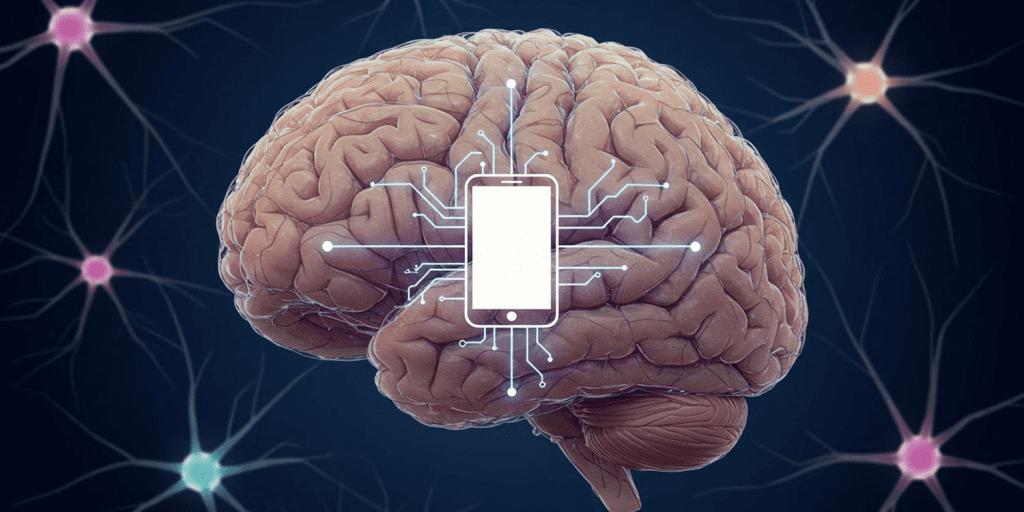
3. Increased Engagement of the Parietal Cortex
Another notable result was the increased activity in the parietal cortex, a region associated with attentional control and sensory processing.
- This suggests that participants became more aware of their environment and less preoccupied with smartphone-related distractions.
- Heightened parietal cortex activity was correlated with reduced craving scores, indicating improved cognitive control over impulsive smartphone use.
This supports the idea that limiting smartphone use can enhance focus and attentional regulation, reducing dependency on digital devices.
4. Reduced Compulsive Checking Behavior
Behavioral assessments showed that participants experienced a significant decrease in the urge to check their smartphones over time. This aligns with the observed neural changes in reward sensitivity and impulse control.
Participants also reported improvements in:
- Sleep quality: Reduced exposure to blue light and nighttime scrolling led to better sleep patterns.
- Social interactions: Without constant phone distractions, participants engaged more with people around them.
- Mental well-being: Several individuals noted feeling less anxious and more present in their daily activities.
Implications for Smartphone Addiction and Digital Detox Strategies
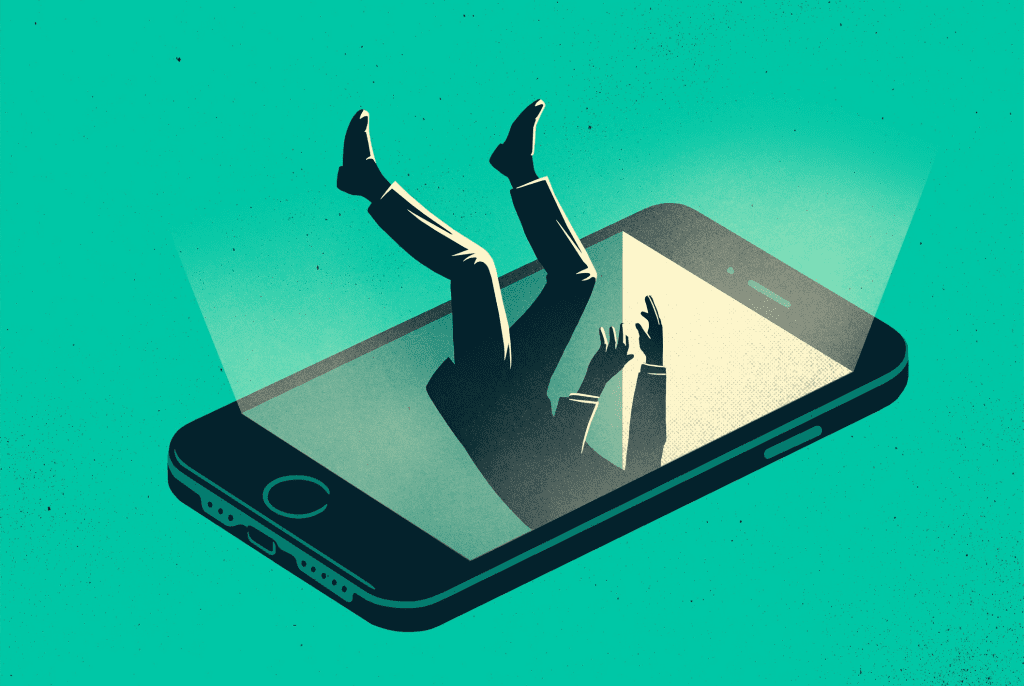
The findings of this study have significant implications for individuals struggling with excessive smartphone use. While a complete break from smartphones may not be feasible for everyone, implementing digital detox strategies can help manage usage and mitigate negative effects.
1. Scheduled Smartphone Breaks
- Taking regular breaks from smartphone use, even for a few hours a day, can help reset neural responses to digital cues.
- Setting specific times for checking messages rather than responding to every notification can reduce compulsive checking.
2. Mindful Technology Use
- Practicing conscious smartphone use by turning off unnecessary notifications and using grayscale mode can help decrease reliance on digital stimuli.
- Engaging in non-digital hobbies, such as reading, exercise, or meditation, can strengthen attention control and reduce smartphone dependency.
3. Sleep Hygiene and Nighttime Restrictions
- Avoiding smartphone use one hour before bed can improve sleep quality by preventing blue light exposure.
- Using do not disturb or airplane mode at night can minimize the temptation to check notifications.
4. Awareness Campaigns and Education
- Schools, workplaces, and mental health professionals can promote awareness of the impact of excessive smartphone use on brain function.
- Implementing digital wellness programs can encourage balanced technology use.
Video : Cell Phones Affect Brain Activity

Conclusion: How Smartphone Restriction Reshapes the Brain
The study provides compelling evidence that even a short period of smartphone restriction can lead to measurable changes in brain activity. The observed reductions in reward-related neural responses, coupled with increased attentional control, suggest that limiting smartphone use can promote cognitive flexibility, impulse control, and overall mental well-being.
As smartphone addiction continues to be a growing concern, understanding the neurological basis of cue-reactivity and digital dependency is crucial. These findings highlight the importance of incorporating healthy technology habits to ensure that smartphones remain tools for convenience rather than sources of compulsive behavior.
By making small adjustments in smartphone usage, individuals can foster better focus, improved mental clarity, and greater overall life satisfaction. So, why not start with a 72-hour break and see how your brain adapts?
Our Granddaughter Demanded We Sell Our House to Help Her Boyfriend Start a Business – We Gave Her a Reality Check


When Mary and George become grandparents, they want nothing more than to spoil their granddaughter, Ellie. But as Ellie grows into herself, and is almost off to college—the couple have to teach her a lesson in understanding whom to trust with her heart, and their money.
The moment my daughter, Monica, was married, I realized that George and I had finally earned our time off. We were the parents of a married woman, who would eventually give us grandchildren.

A bride and groom | Source: Pexels
And until those grandchildren came into our lives—we were going to take advantage of the healthy years we had left.
A few years later, Monica and Eddie gave birth to our only granddaughter, Ellie.

A newborn baby girl | Source: Pexels
Time flew with George and I doting on her. She was our chance at redemption—for us to parent correctly.
“This little girl is everything,” George said when we came home from the hospital on the day Ellie was born.
“We’re going to give her all that we can, Mary, okay?” he said as we got into bed.
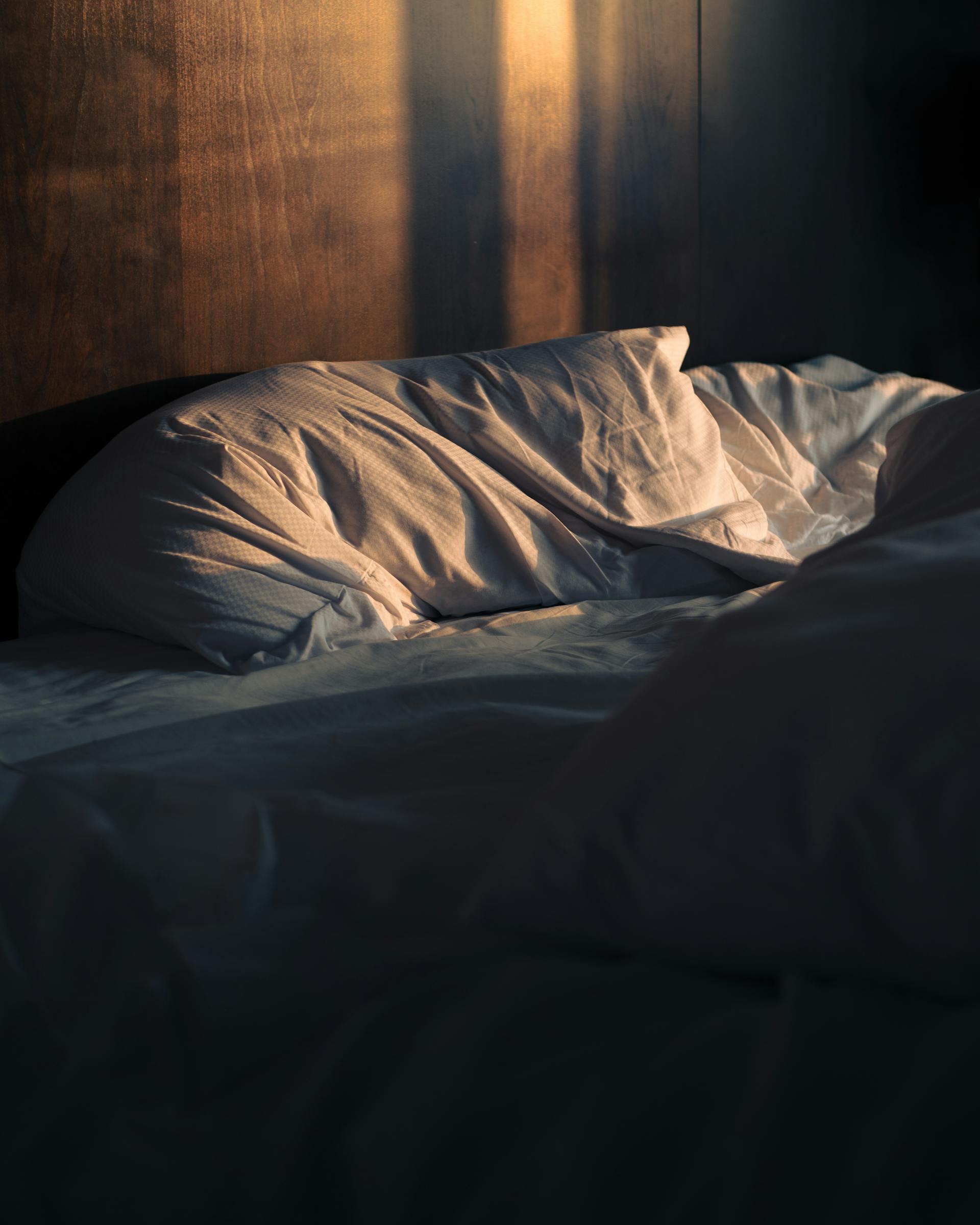
An unmade bed | Source: Pexels
I agreed. This was our opportunity to do everything correctly—and we had money now, so spoiling our granddaughter was something that we could do.
Fast forward to eighteen years later.
Now, Ellie is in high school, almost on her way to college. She grew up in front of us with all the attitude that Monica had as a child—and George and I relished every moment of it.

A teenager sitting on the floor | Source: Pexels
But then, Ellie’s attitude changed. Her feisty personality was no longer cute but rather something that threatened to change everything about her.
That Sunday morning began like any other, with the breeze taking over the kitchen as I did the weekly pancake and bacon breakfast. It was a routine that George and I had established so many years ago, that it was almost second nature now.

Pancakes with bacon and eggs | Source: Pexels
George made us cups of tea—the way he always did—when the doorbell rang, slicing through the calm morning.
I switched off the stove and went to answer.

Tea being poured | Source: Unsplash
There she was, our granddaughter, standing at the threshold, her eyes completely avoiding mine.
“Hi, darling,” I said, stepping aside to let her in. “You’re just in time for breakfast!”
Ellie frowned slightly and nodded to George when he came to see who was at the door.

A red door with a metal doorknob | Source: Unsplash
“Come on, the bacon is extra crispy,” George told her, reaching out to hug her.
But Ellie shook her head.
“Look, I’ll get straight to the point,” she said, her voice trembling slightly, betraying the cold front that she was putting up.

A smiling teenage girl | Source: Unsplash
Everything was odd about her behavior. Usually, she would barge in with hugs and kisses, and would ask us about our health. She would bring us cookies—always made with less sugar. She would make her love known.
But today, Ellie was a shadow of the child that had grown up in front of us.

A tin of cookies | Source: Unsplash
“You remember Tom?” she asked, casually.
Tom was her boyfriend. He was already in college and living off student loans. George and I had met him a few times and he had seemed decent enough. But there was always something about him that seemed off to me.

A smiling young man | Source: Unsplash
“I don’t know what she sees in him, Mon,” I told my daughter one afternoon when we went to a coffee shop to catch up.
“I don’t know either, Mom,” Monica said, digging into a slice of cake. “Eddie isn’t happy about her dating someone older, but you know Ellie. She made her case about it, saying that Tom was good for her. And that he was helping her understand the transition between high school and college.”

A table in a coffee shop | Source: Unsplash
Now, Ellie leaned against the wall and continued to speak.
“Tom’s got this startup idea, right? And it is all about renewable energy or something along those lines. He has been speaking to lots of people—advisors and so on. It could be big. Like huge. But there’s a catch. He needs cash to really get it going.”

People sitting around with plans | Source: Unsplash
I watched as my granddaughter took her phone out of her pocket. She continued to avoid eye contact with us.
George and I exchanged a glance. I had a feeling of what was going to come next.
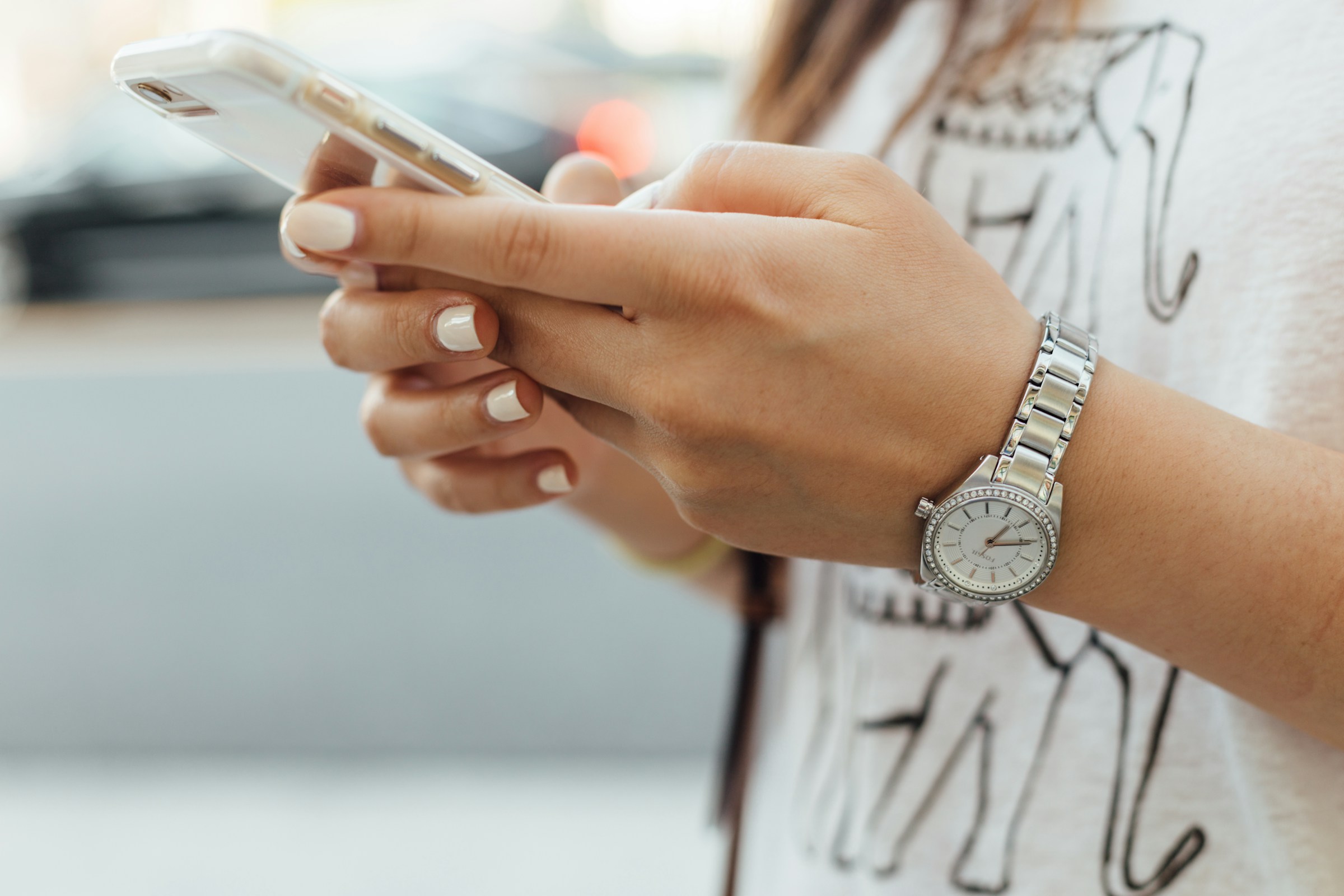
A person holding a phone | Source: Unsplash
But still, Ellie’s words felt like a punch to the gut, delivered with a coldness that I couldn’t believe. It wasn’t something that I had ever associated with her.
“I need you guys to sell the house and move in with Mom and Dad. You’ll get a lot of money from this house, especially because of the neighborhood. It’s a good thing. And you’re old anyway, don’t you want to be back with Mom?”
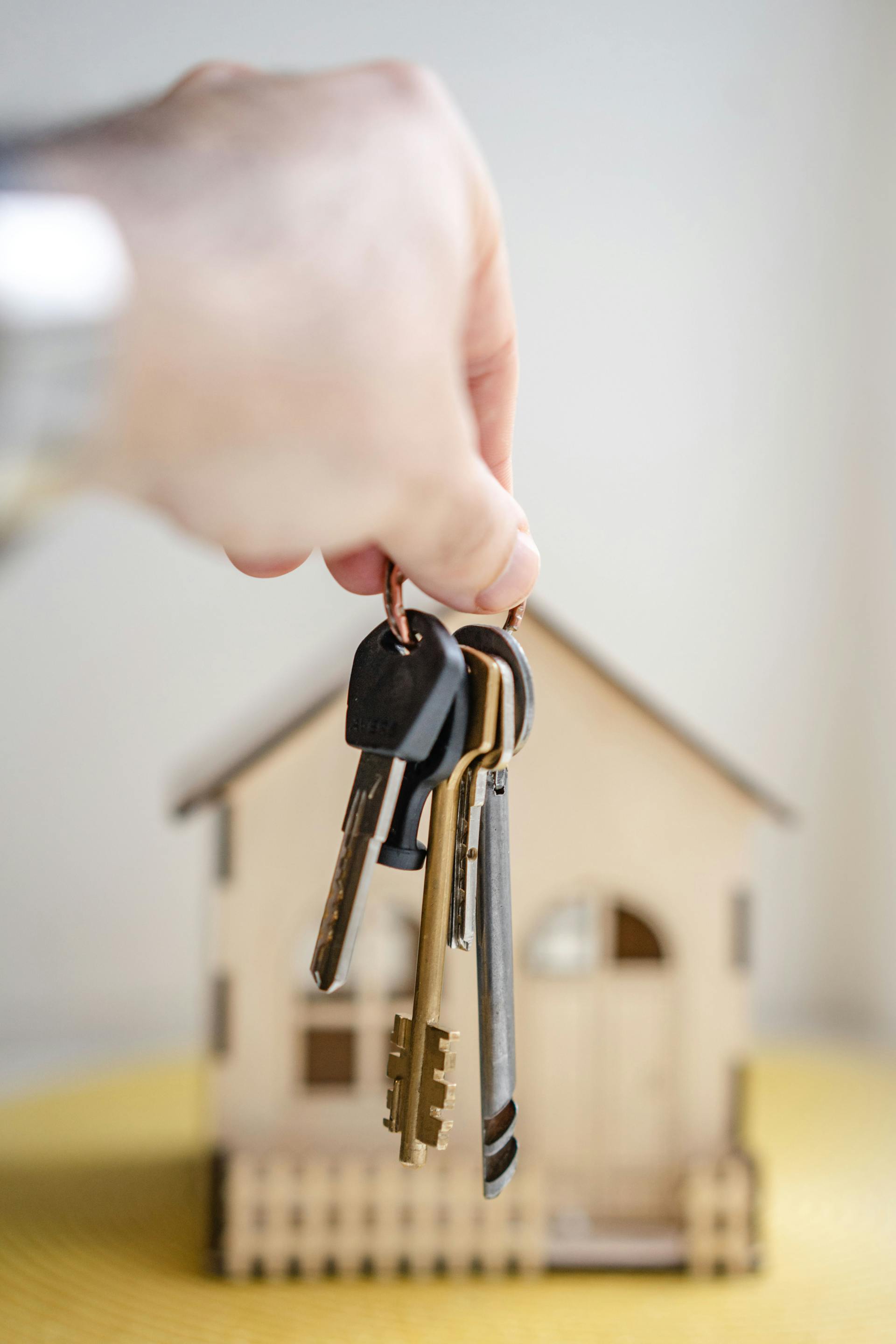
A person holding house keys | Source: Pexels
“And then what?” I asked.
“And then you can give the money to Tom for his project!” she exclaimed, throwing her hands in the air.
George’s cup clattered against the saucer, his brow furrowed deeply in pain and disbelief at the disrespect coming from Ellie.

A disappointed old man | Source: Unsplash
“Ellie,” he said. “This is our home. Not some investment to cash out. It is filled with every memory of us, of our family. Why would you ask us to just give it up for a business venture that sounds like a scheme?”
I remained silent. I didn’t want to step in yet. I sat down on the couch, waiting for George to make Ellie see reason.
Ever since she was a little girl, he was the one person to get her to calm down and get back to herself.

An old woman sitting on a chair | Source: Pexels
“Because you’re my grandparents!” Ellie’s voice cracked, her usual composure slipping. “You should want to help me. Tom’s idea will work. You’ll see. We just need this startup capital.”
The room filled with a tense silence, the kind that suffocates.
I could see the desperation in her eyes, a wild, unsettling determination. It was clear that she was lost in her love for Tom, seeing only what she wanted to see.

A close-up of a teenage girl | Source: Unsplash
But I knew in my gut that Tom wasn’t the right person for her. Despite the age difference, there was just something wrong about them.
George and I exchanged a look of shared heartache. We both knew that confronting her directly wouldn’t help—it would only drive her away and try to find the money in a different way.
“We’ll see what we can do,” George told her.

A smiling old man | Source: Unsplash
After she left, we sat down, the weight of her visit pressing down on us. I began to wash the dishes, letting George come up with a plan.
“We need to show her, not tell her, about this man’s true character,” he said, his voice resolute.
George went into an elaborate scam about creating a fake lottery ticket.
“Don’t worry, Mary, Johnny is a wizard on his computer, he can create it for us.”

A person washing dishes | Source: Unsplash
Johnny was our neighbor’s son, and he was always creating posters for missing pets around the neighborhood.
George’s idea was a harmless trick meant to unveil Tom’s intentions without causing permanent scars. We spoke to Johnny, ordering a ticket designed for a jackpot winner and sent it to Tom anonymously—suggesting that it was a lucky draw from a local store.
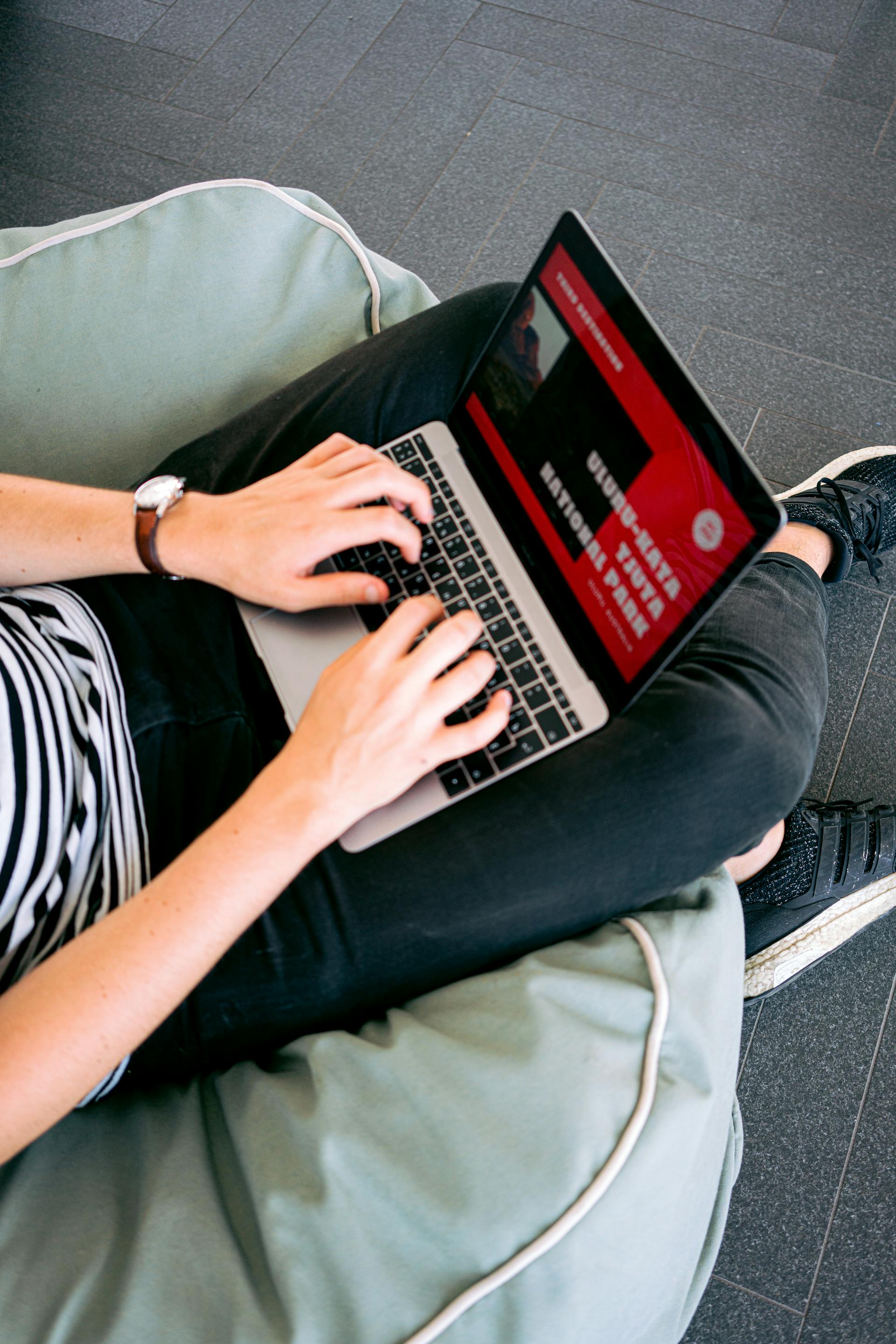
Man using a laptop | Source: Pexels
The result was more immediate and devastating than we’d anticipated.
Two days later, as I was vacuuming the living room, Ellie returned, her face pale and streaked with tears.
“What happened?” I asked, enveloping her into my arms.
“Tom’s gone,” she said. “Grandpa told me what he did. And as soon as Tom thought that he had won, he packed his bags. He left to start his real life in the Caribbean—without me.”
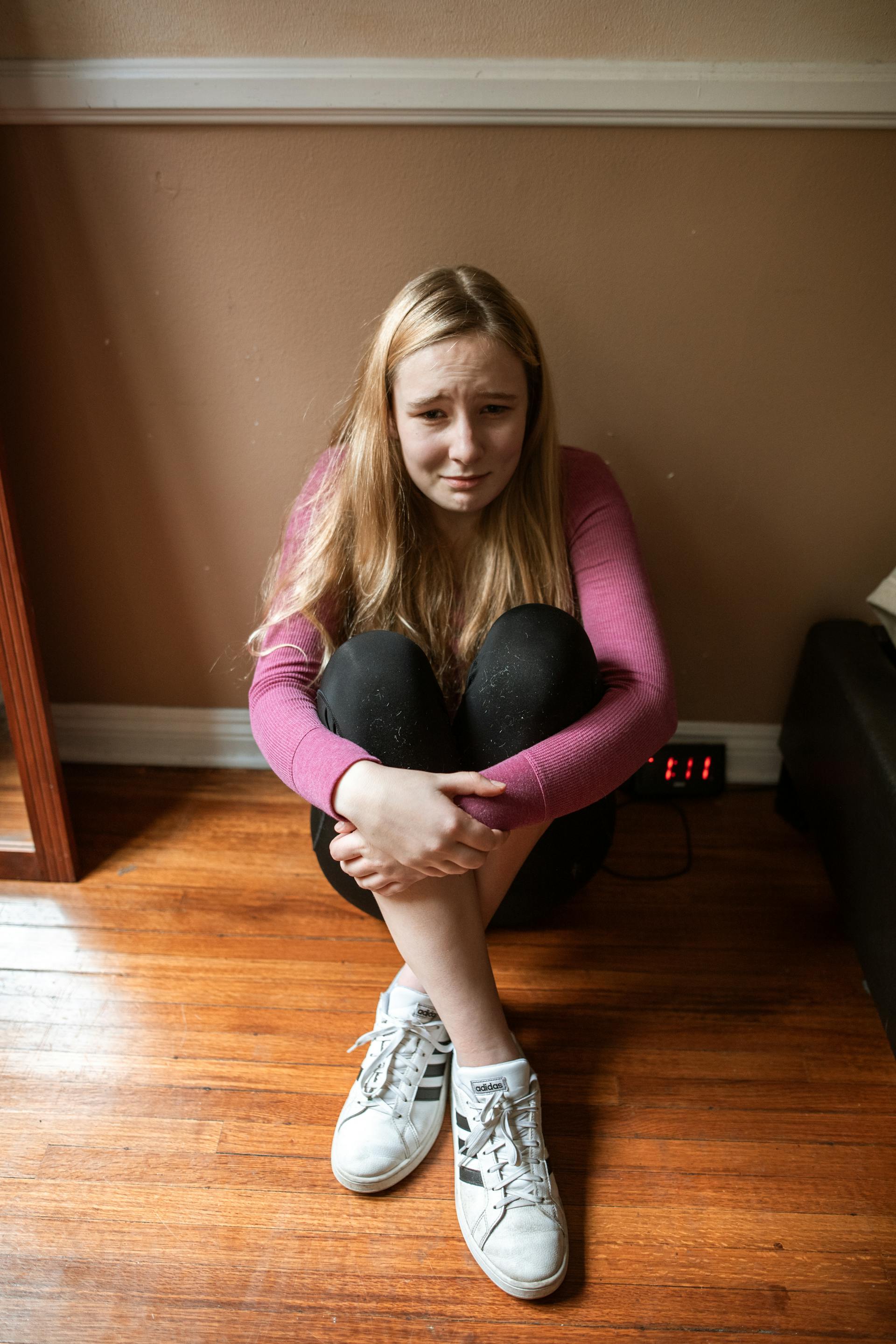
A crying teenage girl | Source: Pexels
Her voice broke, and my heart with it.
I knew that Tom was going to end in heartbreak, but I didn’t think that it was going to happen so soon.
“I thought he loved me,” she whimpered. “How could I have been so blind?”
I stroked her hair, feeling her shudder with each sob.

A woman comforting a girl | Source: Pexels
“Oh, sweetheart, we didn’t want to hurt you like this,” I murmured, my own eyes damp with sorrow. “We just needed to see if he was the real deal before all of our lives changed to help him.”
As the weeks turned into months, Ellie’s wounds began to heal. She spent more time with us, bringing her art material and setting herself up in the living room.
Eventually, Tom was just another part of her growing up experience.

A person holding their art | Source: Pexels
What would you have done?
If you enjoyed this story, here’s another one for you |
When Eliza’s 10th wedding anniversary comes around, she hopes that Tom will take her away for a romantic getaway. But when he forgets about their anniversary and needs to work, she turns it into a girls’ weekend, only for her to see that Tom’s business trip is a rendezvous with his mistress.
Read the full story here.
This work is inspired by real events and people, but it has been fictionalized for creative purposes. Names, characters, and details have been changed to protect privacy and enhance the narrative. Any resemblance to actual persons, living or dead, or actual events is purely coincidental and not intended by the author.
The author and publisher make no claims to the accuracy of events or the portrayal of characters and are not liable for any misinterpretation. This story is provided “as is,” and any opinions expressed are those of the characters and do not reflect the views of the author or publisher.



Leave a Reply